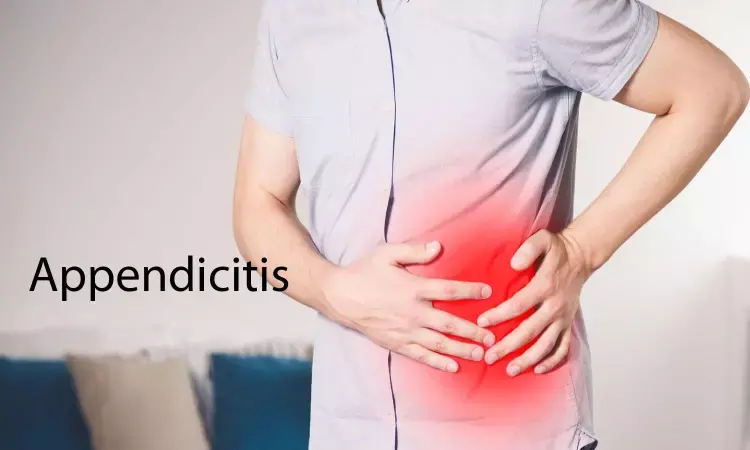- Home
- Medical news & Guidelines
- Anesthesiology
- Cardiology and CTVS
- Critical Care
- Dentistry
- Dermatology
- Diabetes and Endocrinology
- ENT
- Gastroenterology
- Medicine
- Nephrology
- Neurology
- Obstretics-Gynaecology
- Oncology
- Ophthalmology
- Orthopaedics
- Pediatrics-Neonatology
- Psychiatry
- Pulmonology
- Radiology
- Surgery
- Urology
- Laboratory Medicine
- Diet
- Nursing
- Paramedical
- Physiotherapy
- Health news
- Fact Check
- Bone Health Fact Check
- Brain Health Fact Check
- Cancer Related Fact Check
- Child Care Fact Check
- Dental and oral health fact check
- Diabetes and metabolic health fact check
- Diet and Nutrition Fact Check
- Eye and ENT Care Fact Check
- Fitness fact check
- Gut health fact check
- Heart health fact check
- Kidney health fact check
- Medical education fact check
- Men's health fact check
- Respiratory fact check
- Skin and hair care fact check
- Vaccine and Immunization fact check
- Women's health fact check
- AYUSH
- State News
- Andaman and Nicobar Islands
- Andhra Pradesh
- Arunachal Pradesh
- Assam
- Bihar
- Chandigarh
- Chattisgarh
- Dadra and Nagar Haveli
- Daman and Diu
- Delhi
- Goa
- Gujarat
- Haryana
- Himachal Pradesh
- Jammu & Kashmir
- Jharkhand
- Karnataka
- Kerala
- Ladakh
- Lakshadweep
- Madhya Pradesh
- Maharashtra
- Manipur
- Meghalaya
- Mizoram
- Nagaland
- Odisha
- Puducherry
- Punjab
- Rajasthan
- Sikkim
- Tamil Nadu
- Telangana
- Tripura
- Uttar Pradesh
- Uttrakhand
- West Bengal
- Medical Education
- Industry
Antibiotics first line treatment for most appendicitis patients: CODA study final findings

Antibiotics are now an accepted first-line treatment for most people with appendicitis, according to final results of the Comparing Outcomes of antibiotic Drugs and Appendectomy (CODA) trial.
In this randomized trial comparing antibiotic treatment with appendectomy in patients with appendicitis, the percentage of patients in the antibiotics group who later underwent appendectomy was 40% at 1 year and 46% at 2 years and was higher in patients with an appendicolith.
The CODA study findings were published in the New England Journal of Medicine.
"In the first three months after taking antibiotics for the condition, nearly 7 in 10 patients in the antibiotic group avoided an appendectomy. By four years, just under 50% had the surgery," said Dr. David Flum, co-principal investigator and professor and associate chair of surgery at the University of Washington (UW) School of Medicine. "Other outcomes favored either antibiotics or surgery. Putting it all together, antibiotics look to be the right treatment for many, but probably not all, patients with appendicitis."
CODA is the largest-ever randomized clinical trial of appendicitis treatment. At 25 hospitals across 14 states, 1,552 patients with appendicitis consented to participate and were randomized to receive antibiotics or to undergo an appendectomy.
"While there were advantages and disadvantages to each treatment, we found that both treatments are safe, and patients will likely value these outcomes differently based on their unique symptoms, concerns and circumstances," Flum said.
Patients with an appendicolith, a calcified deposit found in about 25% of cases of acute appendicitis, were associated with more complications and a higher chance of appendectomy in the first 30 days. At 90 days out, however, there was no greater chance of appendectomy in patients with an appendicolith.
"Given these results and new treatment guidelines, it is important for surgeons and patients to discuss the pros and cons of both surgery and antibiotics in deciding on the treatment that's best for that person at that time," said Dr. Giana Davidson. She is a UW associate professor of surgery and director of the CODA trial's clinical coordinating center.
To foster those conversations, CODA investigators created an online decision-making tool for patients (http://www.appyornot.org). It includes a video (currently in English and Spanish, with other languages to come) and a mechanism to help patients choose a direction that may better suit their individual circumstances.
"In the emergency setting, patients with appendicitis can make a treatment decision hurriedly," Davidson said. "This online tool was built to help communicate the CODA results in laymen's terms, and to spur a conversation between patients and surgeons about potential benefits and harms of each approach."
https://www.nejm.org/doi/10.1056/NEJMc2116018
Hina Zahid Joined Medical Dialogue in 2017 with a passion to work as a Reporter. She coordinates with various national and international journals and association and covers all the stories related to Medical guidelines, Medical Journals, rare medical surgeries as well as all the updates in the medical field. Email: editorial@medicaldialogues.in. Contact no. 011-43720751
Dr Kamal Kant Kohli-MBBS, DTCD- a chest specialist with more than 30 years of practice and a flair for writing clinical articles, Dr Kamal Kant Kohli joined Medical Dialogues as a Chief Editor of Medical News. Besides writing articles, as an editor, he proofreads and verifies all the medical content published on Medical Dialogues including those coming from journals, studies,medical conferences,guidelines etc. Email: drkohli@medicaldialogues.in. Contact no. 011-43720751


